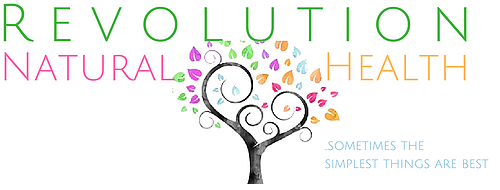Seasonal allergies aren’t fun for anyone, especially young children. The constant sneezing, runny nose, watery eyes, and persistent cough can make for a few miserable spring months when your kid should be spending time playing outdoors and enjoying the fresh air. Taking your kids to the doctor ensures they’ll be prescribed a high dosage of anti-histamines such as Benadryl and Claritin to mask the symptoms and provide relief. While this may be necessary during the most severe weeks of allergy season, the constant drugs can tire them out (and the price adds up too!) Check out our list for 11 ways to help your kiddos beat the spring blues…naturally.
Note: It is important that your child is diagnosed with seasonal allergies before you begin any at-home treatment. If they are showing persistent, allergy-like symptoms, consult your doctor to be sure they don’t have any other health issues such as a sinus infection or strep throat.
Protect face and eyes
Though they may complain at first, giving your child a wide-brimmed hat and sunglasses before going outdoors can help reduce the allergens that blow into their eyes and cause allergic reactions. It is also vital that you ensure your little ones are washing their hands frequently (and thoroughly) and increasing the amount that they shower or bathe to wash off any trace pollen from their skin.
Use a saline rinse
Though your kids probably won’t love the sensation at first, a saline rinse with a device such as a neti pot is an effective way to wash allergens out of the nasal passage. Pollen and other airborne allergens love to cling to mucous membranes and while you’re trying to treat the problem with antihistamines, your child is being constantly exposed to the source of their allergy.
This is probably only an option for older kids and little ones won’t usually stand for anything in their nose. Seems crazy with all the things toddlers love to put up there, huh? You may find success with a saline spray that performs essentially the same purpose.
Diffuse eucalyptus oil
Studies have shown that eucalyptus oil was effective in killing house mites that caused allergies along with reducing inflation and destroying harmful bacteria, parasites, and microorganisms that could lead to an allergy outbreak. Diffuse eucalyptus oil for a few hours every day to cleanse the air and eliminate toxins.
Local honey
If you know your child is sensitive to allergens in the area and you have time to prepare before they start experiencing symptoms, honey could be the answer you’re looking for. Because local bees use natural materials they find in the area, when you give your child raw honey from a local beehive, you are slowly building up their body’s natural defense against irritants by exposing them to small amounts of what they’re allergic to. This begins to teach the body that the local habitat isn’t actually deadly. Start giving your child 1 tbsp of honey each day at least a few months before spring.
Remember: Children under one year of age should not consume honey as it may contain bacterial spores that could affect their health.
Spice up dinner
If your kid will eat spicy, flavorful food, whipping up a dish with cayenne pepper, hot ginger, fenugreek, onions, or garlic can provide them some relief by thinning mucous and helping to clear nasal passages.
Add a humidifier
Many allergies are only exacerbated by dry air in the home. Install a humidifier in your child’s room and keep it running whenever they are in there. This is especially important at night or if you live in a dry, desert climate.
Stay indoors
Allergies are the body’s anti-inflammatory response to a substance that it has deemed hazardous. The itchy, watery eyes, sneezing, and other symptoms are all results of the body trying to flush the offending grass or pollen from its system.
Unfortunately, there is no easy way to get the message across that these particles in the air aren’t harmful. Some allergies eventually go away on their own and others only get worse. The only foolproof way to actually limit your kid’s allergy symptoms is to prevent them from coming in contact with the allergens. Of course, keeping your child indoors for the whole spring (or whenever their allergies are bad) isn’t practical or healthy. However, you can avoid letting them play outdoors during peak pollen times in the mid-morning, early evening, and when the wind is blowing.
Clean the house
The above solution only works if your child is sensitive to outdoor allergens. Unfortunately, dust, mold spores, and even pollen can make their way inside. Regularly vacuuming carpets, dusting with a microfiber cloth, and washing your child’s bedding can help cut down on the amount they’re exposed to.
It is also important to make sure that all of your indoor appliances, such as heating and air conditioning systems and vacuums, have high-efficiency particulate air (HEPA) filters installed.
Water, water, water
Make drinking water a fun game with your child and turn it into a competition with a prize at the end. Or you could treat them with a fun, reusable water bottle that they’ll want to carry around all day. Allergies dehydrate the body so quickly so staying hydrated is absolutely essential. If your child is really stubborn about drinking water, try infusing it with fruit to make it more appealing.
Warm tea with honey and lemon
Giving your little one a soothing, warm tea of honey, lemon, and a dash of apple cider vinegar (if you are able to hide the taste) is a great way to soothe their throat and relieve congestion. Apple cider vinegar has also been proven to be a potent anti-inflammatory agent that can help reduce swelling of the nasal passages.
Saltwater gargle
Persistent coughing and sneezing take a tool on the throat and can lead to sore throat symptoms on top of the already irritating allergies. Dissolving 1-2 Tbsp sea salt in 8 oz warm water and encouraging your child to gargle with this solution every few hours could help provide relief and ease the pain of a sore throat.



